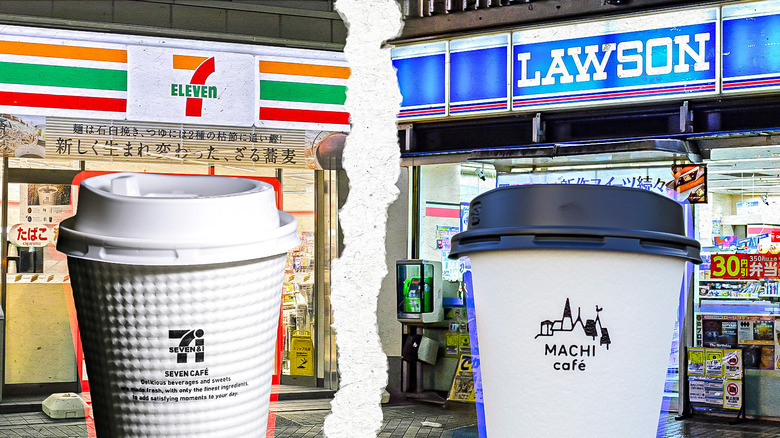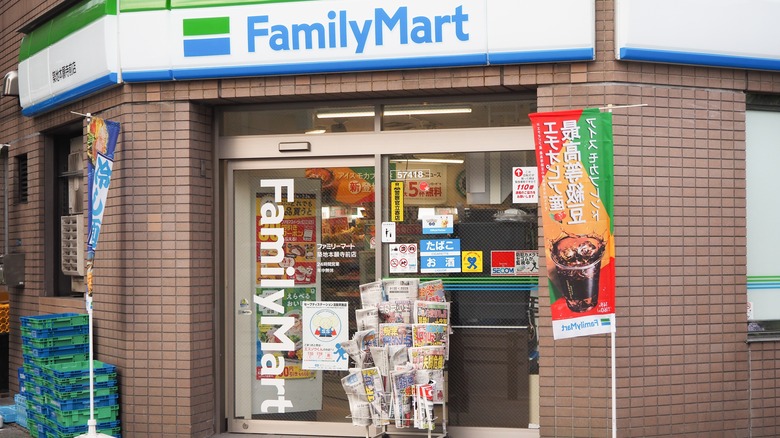The Coffee Wars That Brew Among Convenience Stores In Japan
While there's beauty in relishing a delicious cup at a local coffee shop, sometimes other life commitments call for a quick fix. In such moments, it's all about convenience: An optimization of time, taste, and cost. In the U.S., industry giants like Starbucks, Dunkin', and McDonald's tend to satisfy those quick cravings.
However, in Japan, the task of quickly caffeinating the workforce is centered in convenience stores. Known as konbini, popular chains like Lawson and 7-Eleven are not only quick-stop stores but also beacons of distinct culinary and social subcultures.
The story started when McDonald's introduced an affordable, easily purchased coffee to the Japanese market in 2008, and the major convenience brands quickly adjusted. They launched an ongoing era of tight competition known as the coffee wars. These slowed the consumption of canned coffee — another prominent caffeine vessel in Japan — but, crucially, also inspired an era of fast-paced take-out coffee innovation. Let's unravel this fascinating timeline of coffee development.
Japanese convenience store brands compete on coffee flavor and price
The coffee war's gravity is evinced by Japan's penchant for coffee. In 2022, the coffee sector was valued at $32.61 billion and growing, and in terms of the volume of imported beans, the nation ranks fourth highest. This consumption is reflected in the country's tens of thousands of cafes, however even coffee-focused establishments aren't enough to quell the nation's caffeine fix.
So when McDonald's introduced that ¥100 brew – that's less than a dollar — in 2008, it turned heads. The drink's robust, full-bodied flavor appealed to consumers, and convenience stores tinkered to offer competitive offerings with their own unique twist.
First on the scene was Lawson's, which started offering a range of over-the-counter coffee beverages in 2011. Next, FamilyMart created a self-serve espresso station in 2012, until the scene's biggest player joined the scene: 7-Eleven. The large corporation impressed consumers with its own delicious ¥100 coffee, improving both the taste and cost of what it offered. While the period of 2011-2013 went down as the most contentious, the brands are continuing to refine their coffees and compete fiercely with each other for coffee custom to this day. So, while a Japanese specialty coffee shop may offer the most exquisite cup, it's never a bad idea to pop into a convenience store for a caffeinated jolt when you're in the country.

